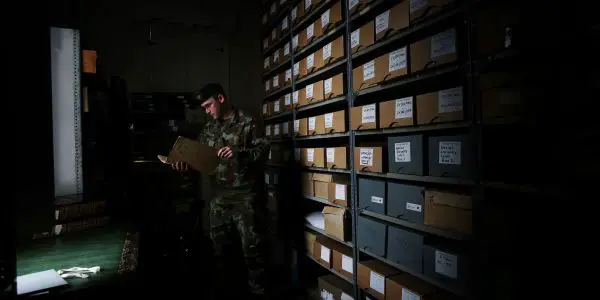The grandson of a leading 1916 rebel who was never awarded a military medal for his role in the Easter Rising says hundreds more have not been officially recognised.
Cathal MacSwiney Brugha, a university professor, said he is “not bothered” that his famous grandfather, after whom he is named, was never issued the 1916 medal.
But he has called for a national effort to once and for all establish who was involved in both the Rising and the War of Independence.
“As far as I know, a lot of people who actually did fight – and a lot of them who got injured couldn’t get work subsequently – didn’t get any recognition of one kind or another,” he said.
“I think it is hundreds.”
Last week, it emerged three household names from the Easter Rising were never awarded with a military medal for their role in the insurrection.
They include Cathal Brugha, Countess Markievicz and Sean Russell.
The Department of Defence said although the three had “verifiable, historically proven service during Easter Week 1916” they were not honoured because no claim was ever made by them or on their behalf.
Dismissing official “definitive” numbers on combatants as wide of the mark, Prof MacSwiney Brugha said the high-profile omissions were only a fraction of those never recognised by the State for their part in the revolutionary period.
“I think this is worth looking at,” he said.
“We are celebrating the fact that people are free, but a lot of the people who participated (in the fight for independence) didn’t get properly recognised.
“Now is the time to actually gather all the information – a lot of very good books have been written, a lot of family papers are coming out and military records are now becoming available.
“Let’s have some transparency and let’s have the job completed.”
Files just released into the newly-opened Military Archives show 2,594 recognised veterans were awarded the 1916 medal. Most were issued using records from the military pensions.
But Prof MacSwiney Brugha said applications for recognition were often sabotaged in the early years of the Free State, while later governments could not afford to grant pensions to everyone who fought.
“The actual list of the people who were all in the different places and the list of people who got recognition – they don’t match,” he said.
The University College Dublin professor said it was not necessarily about issuing medals, but the names of those who took part in the revolutionary period should be recognised by the State.
“We could have a national approach … let’s find out for once and for all who was involved, and not just in 1916 but also in the War of Independence,” he added.
Cathal Brugha was second in command of the rebels stationed at the South Dublin Union garrison – where St James’ Hospital stands today – under Eamonn Ceannt.
Believed to be the only person outside of the Rising leaders who had a copy of the insurrection plans, he survived despite being shot 25 times and was reportedly found in a pool of blood singing to keep himself conscious.
He went on to become a TD and defence minister but was later killed during civil war fighting on O’Connell Street.
